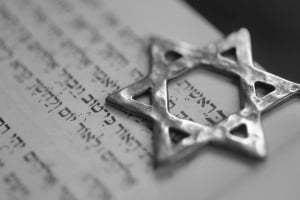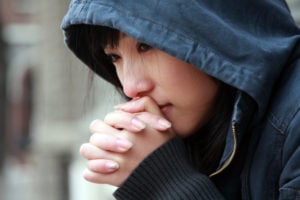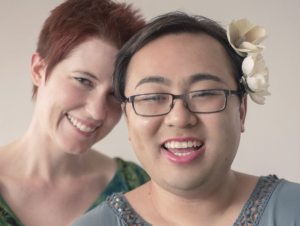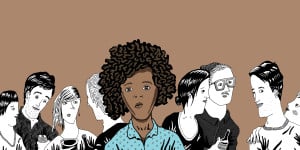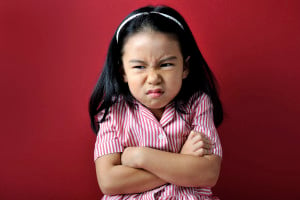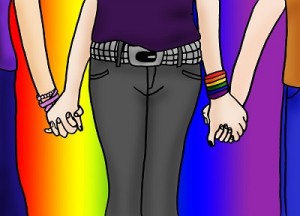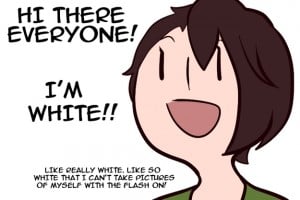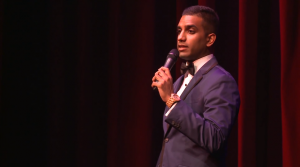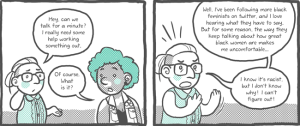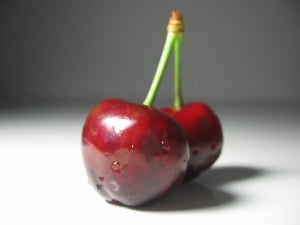When I was a kid, Zionism – the political ideology responsible for the development and protection of a Jewish nation-state, currently known as Israel – made sense to me.
Growing up as a member of the only Jewish family in a rural, mostly Christian town was Not Fun.
Kids were mean and sometimes violent, neighbors called CPS on my parents because of their failure to “ensure the salvation of their children’s souls” (as in, they didn’t take us to church or have us baptized), and teachers in grade school would tell me to take off my Star of David necklace because they thought it was a pentagram and “there would be no devil worship in the class room!”
As children from low-income households navigating legitimate feelings of scarcity, sharing snacks with other kids at lunchtime was unthinkable amongst most of my peers. But because my siblings and I were Jewish, not sharing meant we were “stingy” or “greedy,” and we were ridiculed and punished accordingly.
The only reprieve I felt was when I was at synagogue in the company of other Jewish kids.
I remember it felt so good to not be the only Jew within a sixty-mile radius! It was there that I developed some of my first ride-or-die friendships. My everyday identity as a singular, cultural outcast evaporated inside those temple walls, and being allowed to see myself as a part of something larger, even if only for a few hours a month, was a life-saving experience.
It was also at synagogue, however, that I underwent some really intensive, foundational Hasbarah education.
I remember sitting in a room with dozens of other Jewish kids as the rabbi alternated between playing us excruciatingly graphic documentaries about the Holocaust, and Israeli propaganda cartoons.
Before playing us the Holocaust videos, our rabbi would smugly say things like, “You are all old enough to know the truth: This is what we, as Jews, can expect from the world we live in. Everyone is jealous because we are God’s chosen people. Jews have been persecuted since the beginning of time as a result of that jealousy. The Holocaust is only one example.”
After watching these films, we would be put into discussion groups and asked to brainstorm tactical strategies to “ensure the safety of Our People” for future generations.
When the rabbi called the class back together he would simply say, “Jews will never be safe anywhere, which is why the state of Israel is so important.” He would then immediately cue the Israeli tourist propaganda to quell our newly budding terror.
Now, it doesn’t take much to scare the shit out of a kid. And quite honestly, when I’d leave temple and go back to the horrors of my culturally Christian hometown environment, the idea of a designated safe-haven for Jews sounded pretty good.
But little did I know, the “safe haven” I was being taught about was not only unsafe for Jews, but also that it existed as the direct result of an indigenous population’s massacre and displacement.
Disillusionment
As I grew older and began to build close friendships with kids of color – kids who were also treated like shit at school by students and teachers alike – it became clear to me what navigating the deepest dredges of oppression actually looked like.
Although things were pretty uncomfortable for me growing up in a culturally Christian town, as a person with white privilege, I could usually slide under the radar and avoid (at least) the most violent of scrutiny.
Conversely, I’d witness my friends of color get regularly harassed by the town cops. They were always being frisked and detained for not having citizenship papers on them, and they were constantly having their homes and families torn apart during local ICE raids.
One day, in my pre-teen naiveté, I suggested to one of the rabbis at temple that since brown folks also seemed to be really abhorred by the world, maybe they, too, should be allowed to seek refuge and safety in Israel.
His answer would begin the unraveling of a story that shifted my perspective forever. He looked down at me intently and said, “If they are not Jewish, they are of no concern to us.”
In true Zionist fashion, he went on the usual tirade about “the unique and specific plight Jewish people have faced throughout history,” driving home the importance of spending our energies looking out for ourselves and each other before anybody else.
We were always encouraged to reflect on the atrocities of the Holocaust as proof that Jews needed an autonomous, national homeland in order to stay safe from the world’s impending doom.
As I got older, though, I learned that some of my (non-Jewish) friends also came from families with histories of displacement and mass genocide (Western expansion, the Trail of Tears, slavery and Jim Crow, to name a few). And yet nobody ever advocated for them to have a national homeland in order to ensure their safety.
This conversation happened when I was twelve years old, and it awoke in me the initial stirrings of distrust and skepticism.
It wasn’t until much later, when I learned about the occupation of Palestine, that my entire belief system would crumble around me.
The Breaking Point
In the mid-90s, during the Oslo Peace Negotiations, I began seeing images on the news of Israeli military tanks bulldozing entire Palestinian villages, Israeli soldiers denying Palestinian families access through checkpoints to seek proper medical care, and mobs of Palestinian children being held at gunpoint by Israeli soldiers for having thrown rocks at encroaching, armed cavalries.
We all know that the US media shows us only a fraction of what’s actually happening in the rest of the world, and given that the US generally portrays Israel in a favorable light (do to its vested interest in maintaining a military base in the Middle East), I can only imagine that those images were just the tip of a much larger iceberg.
This is when I realized that I had been being lied to for a majority of my adolescent life.
At no point during my religious education had anyone ever mentioned that the indiscriminate massacre and displacement of Palestinian people was necessary for Israel to exist! At no point did anyone mention that maintaining and expanding an exclusive Jewish state requires the ongoing ethnic cleansing and military repression of Palestinians!
Israel continues to insist that these are actions carried out in the name of “self-defense.”
But today, the number of Israeli casualties on average continues to be disproportionately less than those of Palestinians – yet Israel refuses to recognize Palestinian violence as a reaction to Israeli policies and practices, particularly those of occupation, land confiscation, and police state rule.
This is exactly the kind of denial and complacency that Zionist ideology breeds.
How Zionism Hurts People (Including Jews)
While I did find a necessary sense of kinship and safety through attending temple as a child, it was through Zionist ideology that my fears and anxieties about anti-Semitism were enhanced and exploited.
The state of Israel relies on the nationalist loyalties of Jews all over the world – loyalties that are secured through the manipulation of our very real senses of collective, historical trauma.
Further, beyond the blatant, unapologetic displacement of Palestinian people, Zionism creates a hierarchy of justice that even privileges certain Jewish lives over others.
As a nation founded by mostly European settlers (Ashkenazi Jews), racism against Jews of color in Israel is also rampant. Discrimination against Arab Jews, Ethiopian Jews, Indian Jews, Mizrahi, and Sephardic Jews can be seen through Israel’s institutional policies, media portrayals, educational systems, immigration laws, housing and resource accessibility, and so on.
When my grandfather, an Egyptian Arab immigrant and Sephardic Jew, moved to Israel from the US in the late ‘90s, he had to deal with so much shit that he eventually decided to move back to the States after only a few years. This decision, given the heightened state of post-9/11 anti-Arab racism, says a lot.
Contrary to the messages of Hasbara and Israel’s international, commercial front, Zionism is not an ideology rooted the politics of liberation.
Zionism discourages Jews from participating in or identifying with broader global resistance movements and instead advocates for a focus on exclusive, insular protection at the expense of non-Jewish lives.
Since Israel – the geographical mecca for Jewish insularity – requires the oppression of another group of people to exist, it will never be a safe haven for anyone.
Next Steps in Decolonizing Our Minds
All too often, I hear people insist that opposing the state of Israel is somehow inherently anti-Semitic. I’ve actually been told before (by Jews and Goys alike) that my anti-Zionist politics make me a bonafide “self-hating Jew.”
This is a classic way to shut down a crucial conversation.
We should be skeptical of any movement that centers the protection of European settlers at the expense of a land’s indigenous population.
Conversations and critiques about this shouldn’t have to stop just because someone utters the word “Holocaust.” If you ask me, there’s something seriously wrong when we’re forbidden from taking a stand against both anti-Semitism and imperialist repression simultaneously.
We have (rightfully) organized against forms of apartheid, institutional racism, colonial violence, and genocide all over the world throughout history (in the US, South Africa, South and Central America, Cambodia, Rwanda, Bosnia, Darfur, and more).
We also need to take a stand against the state sanctioned violence that’s inflicted against Palestinians by the Zionist state of Israel.
Beyond ideological reframing, here are some other tactical steps you can take in support of the Palestinian freedom movement:
- Get involved with IJAN (International Jewish Anti-Zionist Network) or JVP (Jewish Voice for Peace)
- Support the Palestinian BDS campaign (boycott, divestment, and sanctions against Israel)
- If you are Jewish and thinking about taking your “birthright” trip to Israel, consider doing Birthright Unplugged instead!
Because in order to be effective in the fight against any system of oppression, decolonizing our minds is the first step.
***
The sense of safety and community I found at temple when I was a kid is something I will always be grateful for.
Through gaining perspective about the harmful impacts of Zionism, I’ve been able to both appreciate my Jewish community, as well as take a stand against the violent injustices inflicted by the state of Israel.
Separating Zionism from my Jewish identity has allowed me to make the bold assertion: Israel’s violent, imperialist campaign against Palestinians – not on my behalf, not in my name.
[do_widget id=’text-101′]
Annah Anti-Palindrome is a Contributing Writer for Everyday Feminism. She is a bay-area based writer, musician and queer/femme antagonist who hails from the working-class craters at the base of the Sierra Foothills. For more info on her work, see annahantipalindrome.com. To contact, message her via her facebook fan page!
Search our 3000+ articles!
Read our articles about:
Our online racial justice training
Used by hundreds of universities, non-profits, and businesses.
Click to learn more


